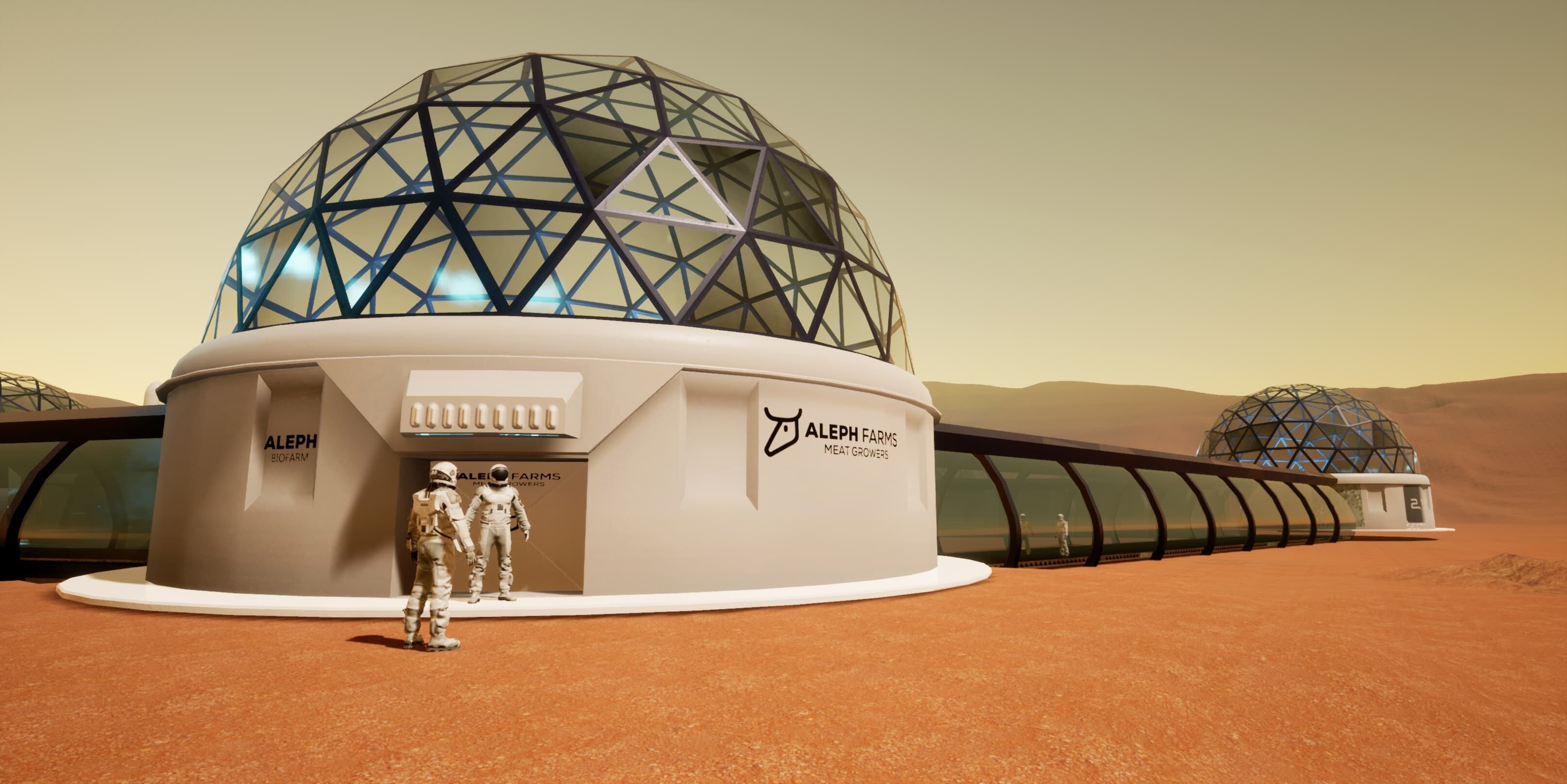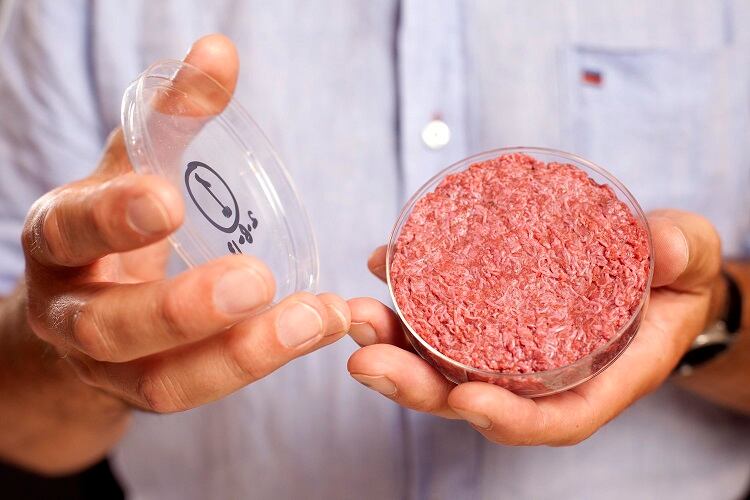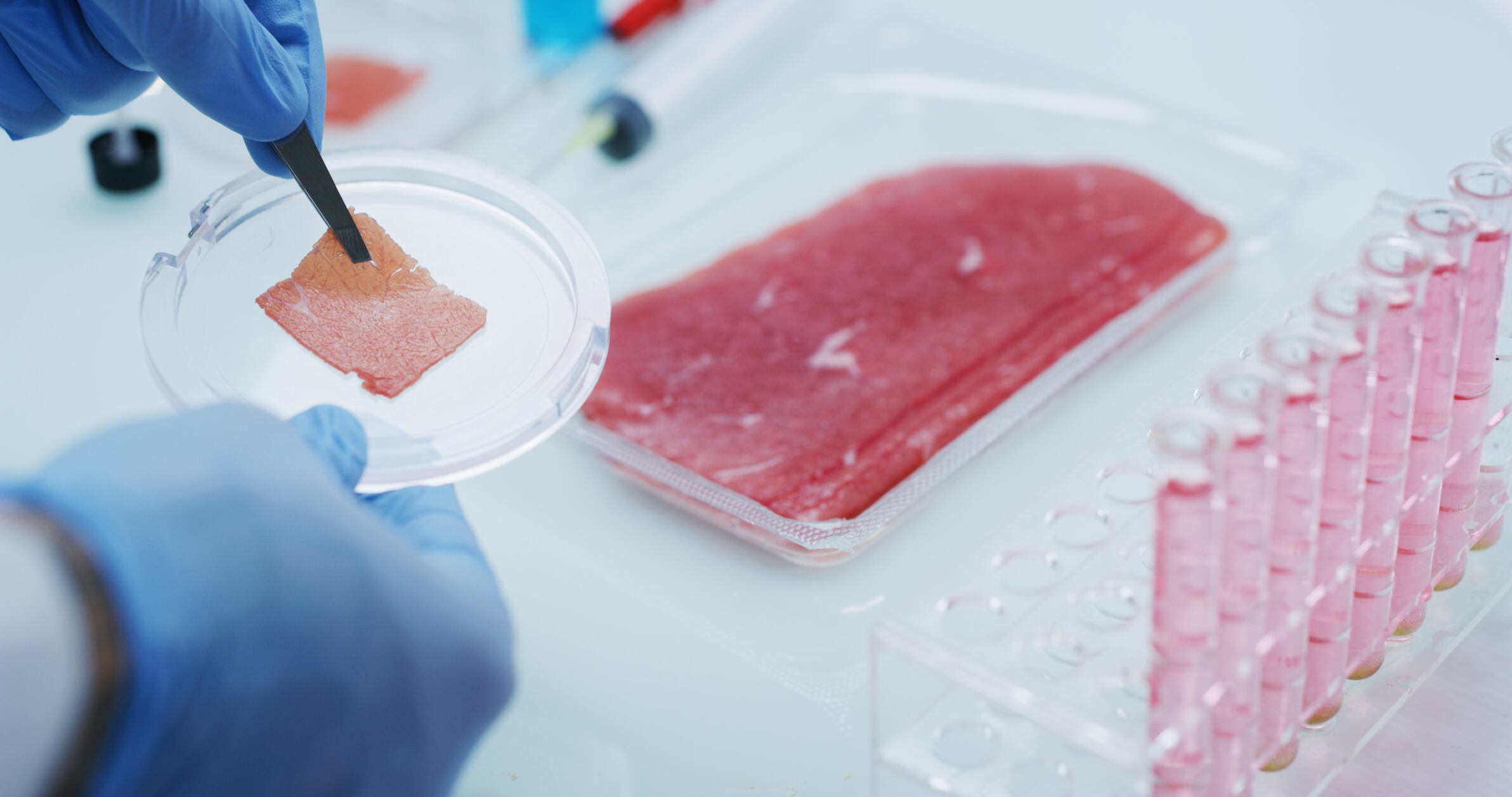The Israeli startup, which makes cultivated steaks from non-GMO cells isolated from living animals, said its technology would allow meat to one day be produced in the harshest of climates with zero natural resources.
“Last year, by successfully cultivating meat in space with 3D Bioprinting Solutions, we proved that unconditional nutrition can be available to anyone, anytime and anywhere, independent of climate or the availability of local natural resources,” said Aleph Farms CEO Didier Toubia.
Speaking to FoodNavigator, he added: “Aleph's Farms food security vision is about producing quality meat locally for anyone, anytime, anywhere, even in the most remote and harsh environments on Earth, like Antarctica or the Sahara Desert. Aleph Zero is about implementing this vision one step forward: we want to make sure that when people live on the moon or on Mars, we’ll be there too – to provide quality nutrition and delicious meat to literally anyone.
"This would be independent of climate or the availability of local natural resources.”
Aleph has raised $12 million in Series A funding. It plans to build its first pilot plant (or Biofarm) in 2021, with a commercial launch targeted by the end of 2022.
Toubia insisted the company had a "clear path to achieve cost-parity for large scale production of cultivated meat products.
“In 2018, we reported that one serving of steak cost $50 to produce. In April 2020, we completed the design of our first pilot BioFarms, and have achieved key milestones in cost reduction with our unique technology platforms. As we scale our BioFarms, the cost per steak will decrease and reach parity with slaughter-based meat within a few years.”
Aleph Farms said it was currently in discussions ‘with a few’ space agencies and technology partners to build a consortium focused on producing meat in extraterrestrial human colonies. “Public agencies and private companies are today working together to push new space frontiers,” said Toubia.
“We cannot yet disclose the names of the entities we are discussing with at this stage due to confidentiality, but hope to reveal more details very soon. We are partnering with global space agencies and building a collaborative consortium for long-term R&D contracts of cultivated meat production in space. These contracts have the target of building local BioFarms on extra-terrestrial planets too (like Mars or the moon). They are about building the infrastructure for deep-space exploration and for a self-sustaining human colony in space: with local food production operations, local food economy and unconditional supply of nutritious food. “
Space is the place
A host of programmes have launched in recent years, both from public agencies, such as Artemis, and private initiatives, such as SpaceX or Blue Origin to renew deep-space exploration efforts.
“Space is becoming a significant opportunity moving forward and companies like SpaceX have shown how private start-ups can play a significant role in supporting this market development,” said Toubia.




